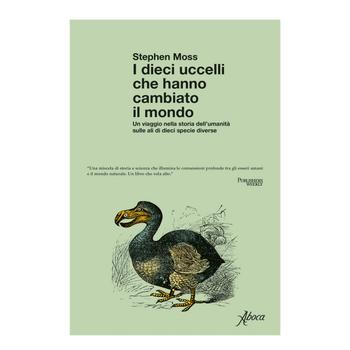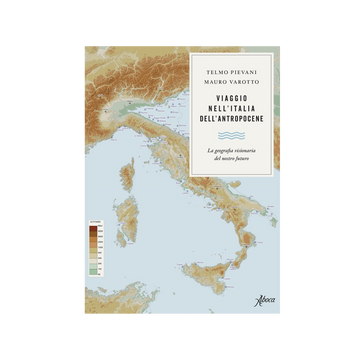You have no items in your shopping cart.
Oltre la malattia oncologica Oltre la malattia oncologica
Tra omeostasi e chemioterapia per un più completo supporto e sostegno Tra omeostasi e chemioterapia per un più completo supporto e sostegno
Sergio Crispino Sergio Crispino
€22,00
“This volume stems from our need to measure so that we can understand, and understand so that we can cure, in a context in which measuring does not mean simply collecting conventional biological and clinical parameters, but also listening to the patient and quantifying signs of so-called 'sub-clinical' illness in a standardised, comparable and reproducible way, perhaps because we still do not know how to weigh them correctly”.
From the Preface of Maurizio Tomirotti, President of CIPOMO.
“This volume stems from our need to measure so that we can understand, and understand so that we can cure, in a context in which measuring does not mean simply collecting conventional biological and clinical parameters, but also listening to the patient and quantifying signs of so-called 'sub-clinical' illness in a standardised, comparable and reproducible way, perhaps because we still do not know how to weigh them correctly”.
From the Preface of Maurizio Tomirotti, President of CIPOMO.
Availability:
In Stock
Sku: LIBMAONCO
ISBN/EAN: 9788898881284
As is well known, remarkable diagnostic and therapeutic progress has made it possible to improve the outcomes and quality of life of tumour patients in important ways, but cancer is still frequently and profoundly fraught with vulnerability, malaise, suffering and distress. Recently, there has been a stronger drive toward the study and research into the vulnerability and malaise connected to tumours and their treatment, and therefore also to the physical, psychological and social relapses that the illness entails. From this outlook, development and enhancement in the knowledge of the pathophysiological mechanisms behind these problems has taken on specific value - concepts such as homeostasis, balance and imbalance, allostatic load and overload, and reparation mechanisms. In order to emphasise and revive the importance of these themes, this book attempts to broaden the vision, and in part also the methods, of treating the classic problems of oncology.
Sergio Crispino graduated in Medicine and Surgery at the University of Florence. He graduated from the European School of Oncology and specialised in Oncology at the University of Genoa and in Chemotherapy at the University of Milan. He worked as a scholar at the National Cancer Institute of Milan as well as in Medical Oncology. He served as an assistant oncologist at the New San Gerardo hospital in Monza and as an assistant in Oncology at the Hospital of Arezzo. Since 1999, he has been Director of Oncology and Director of the Oncology Department at the USL 7 (local health service) of Siena – The Tuscan Cancer Institute. He is the author of numerous scientific works in the field of oncology and solid tumours, with particular interest in organ preservation, quality of life and the development of new treatments. He has taught at the Universities of Milan and Siena and has collaborated with SDA Bocconi School of Management, Milan. He is a member of: the American Society of Clinical Oncology (ASCO), the European Society of Medical Oncology (ESMO), the Italian Association of Medical Oncology (AIOM), the Italian Cancer Support Network Cure (NICSO), and the Italian College of Head Hospital Doctors in Oncology (CIPOMO), of which he is Past President.
As is well known, remarkable diagnostic and therapeutic progress has made it possible to improve the outcomes and quality of life of tumour patients in important ways, but cancer is still frequently and profoundly fraught with vulnerability, malaise, suffering and distress. Recently, there has been a stronger drive toward the study and research into the vulnerability and malaise connected to tumours and their treatment, and therefore also to the physical, psychological and social relapses that the illness entails. From this outlook, development and enhancement in the knowledge of the pathophysiological mechanisms behind these problems has taken on specific value - concepts such as homeostasis, balance and imbalance, allostatic load and overload, and reparation mechanisms. In order to emphasise and revive the importance of these themes, this book attempts to broaden the vision, and in part also the methods, of treating the classic problems of oncology.
Sergio Crispino graduated in Medicine and Surgery at the University of Florence. He graduated from the European School of Oncology and specialised in Oncology at the University of Genoa and in Chemotherapy at the University of Milan. He worked as a scholar at the National Cancer Institute of Milan as well as in Medical Oncology. He served as an assistant oncologist at the New San Gerardo hospital in Monza and as an assistant in Oncology at the Hospital of Arezzo. Since 1999, he has been Director of Oncology and Director of the Oncology Department at the USL 7 (local health service) of Siena – The Tuscan Cancer Institute. He is the author of numerous scientific works in the field of oncology and solid tumours, with particular interest in organ preservation, quality of life and the development of new treatments. He has taught at the Universities of Milan and Siena and has collaborated with SDA Bocconi School of Management, Milan. He is a member of: the American Society of Clinical Oncology (ASCO), the European Society of Medical Oncology (ESMO), the Italian Association of Medical Oncology (AIOM), the Italian Cancer Support Network Cure (NICSO), and the Italian College of Head Hospital Doctors in Oncology (CIPOMO), of which he is Past President.
Release date: 2017
Dimensions: cm 17,5 x 24
Pages: 112
Release date: 2017
Dimensions: cm 17,5 x 24
Pages: 112












